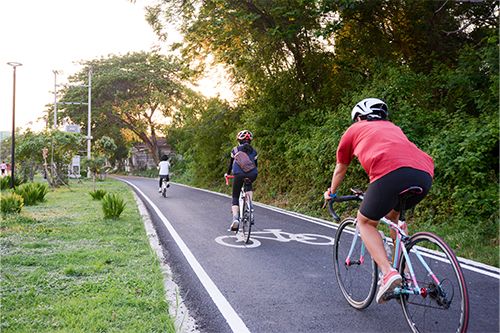Introducing Inclusive Border Cycling

In an era where digital innovation continues to reshape our interactions with the world, the project of Inclusive Border Cycling (IBC) emerges as a profound initiative at the intersection of culture, heritage, and technology. This innovative strategy not only encourages physical activity and environmental awareness, but also uses digital tools to improve our understanding and preservation of cultural assets across boundaries.
At its core, Inclusive Border Cycling encourages individuals to traverse borders, both physical and cultural, through cycling. This initiative transcends traditional tourism by promoting sustainable travel practices and fostering a deeper connection with local histories, traditions, and landscapes. By pedaling through these diverse regions, participants engage firsthand with the tangible and intangible elements of cultural heritage, gaining insights that extend beyond typical tourist experiences.
The project also addresses challenges in peripheral border areas of the Danube region by developing socially inclusive cycling trails, enhancing infrastructure, and targeting vulnerable groups and the silver age market. This approach not only increases competitiveness and marketability but also promotes social cohesion and attracts socially responsible customers. By creating new tourism activities and promoting international marketing, Inclusive Border Cycling supports sustainable tourism and mobility. Ultimately, the project highlights local heritage while building a more inclusive and connected community.
The integration of digital technologies for documenting and preserving cultural heritage can greatly enhance the project. Advanced digitization techniques like 3D scanning, AR, and VR can be used to create detailed and accurate digital replicas of historical sites, artifacts, and cultural narratives along the cycling routes. This ensures that these cultural treasures are preserved for future generations and can be studied and appreciated even if the physical sites are altered or deteriorate over time.
A key aspect of this initiative involves digitizing content related to the cycling routes and cultural heritage sites, making it accessible through online platforms. Virtual tours will enable people worldwide to experience the rich cultural history of the border regions without needing to be physically present. This digital approach not only broadens the audience but also enhances the attractiveness and marketability of the trails. Consequently, this method will increase the competitiveness of the cycling trails, making them a more attractive option for both local and international tourists despite the existing challenges.
The project presents a blueprint for leveraging digital innovation to promote cultural exchange and understanding on a global scale. As technologies evolve, so will the opportunities to create immersive, interactive experiences that transcend language barriers and geographical limitations. By integrating cutting-edge virtual and augmented reality tools, participants can explore and appreciate different cultures in a more engaging and meaningful way. Ultimately, Inclusive Border Cycling aspires to break down the walls that divide us, paving the way for a more inclusive and interconnected world.
Inclusive Border Cycling exemplifies the transformative power of blending physical exploration with digital innovation. By cycling through diverse border regions and embracing cutting-edge digitization techniques, individuals not only engage with cultural heritage in meaningful ways but also contribute to its preservation and spreading.
